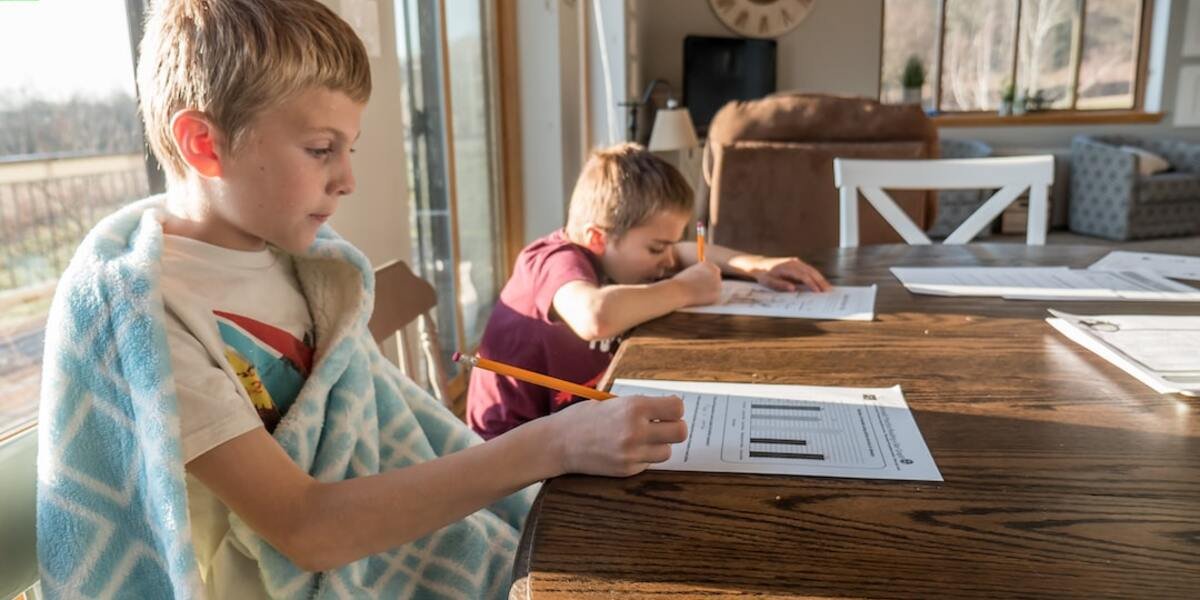Disadvantages of Homeschooling: A Comprehensive Insight for Parents and Educators
Homeschooling has become an increasingly popular choice for parents worldwide, looking to take control of their children’s education. However, like any educational model, it also carries certain disadvantages worth considering before diving deep. In this blog post, we will provide a comprehensive insight into the disadvantages of homeschooling from various angles.
While embracing flexibility in learning hours and curating personalized study programs are among its foremost advantages; isolation issues, heavy parental time commitment and potential gaps in learning standards often count as primary “disadvantages of homeschooling”. The aim here is not to discourage interest but rather help parents and educators make well-informed decisions with a balanced perspective on home-based schooling.
Did you know?
Despite its numerous advantages, homeschooling also has hidden disadvantages such as limiting kids’ athletic opportunities. Several public schools have rules prohibiting homeschooled students from participating in sports teams or extracurricular activities.
Uncovering the Social Implications of Home Schooling
Home schooling, while gaining popularity in recent years due to its flexible approach concerning the child’s learning pace and personalized curriculum, still has significant social implications that parents need to take into account. One such implication relates directly to effective technology integration within home education frameworks.
Technology plays a paramount role in present-day curriculums worldwide. It aids teachers deliver engaging lessons and introduces students to new-age skills like programming or digital art early on in their educational journey. However, one primary disadvantage of homeschooling is it may limit these tech-driven interactions frequently found within traditional school settings.
Home educators often find it challenging integrating innovative technologies effectively into their methodology since schools usually have more resources at hand for this purpose – from interactive whiteboards right down software subscriptions optimized for teaching various subjects virtually. This disparity can put homeschooled children slightly behind those who attend regular establishments when it comes strictly technical competence or fluency certain cutting-edge tools require.
Moreover, another potential downside involves reduced exposure diverse demographics typically met with conventional classrooms; rich tapestry backgrounds lead broader understanding tolerance technological age witnesses rapid cultural shifts transcending beyond local neighborhoods cyber communities globally connected via internet superhighway.
The Challenge of Developing Social Skills Outside Traditional Schools
In many households, home schooling has emerged as a popular education alternative. Advancements in technology and the ease of access to information have helped fuel this trend further. While homeschooling does offer several advantages, it’s also essential to examine the disadvantages of homeschooling – particularly when it comes to developing social skills outside traditional schools.
One notable challenge that children face through this form is limited peer interaction. Unlike their counterparts who attend regular school settings, homeschooled kids often miss out on daily interactions with peers. Casual conversations during breaks or group tasks inside classes are opportunities for them to learn teamwork and cooperation which aren’t available at home.
Moreover, taking part in activities like sports events or drama clubs helps build confidence among youngsters by pushing boundaries beyond just academics; sadly these participation chances reduce greatly when being educated at houses instead public institutes hence might produce hesitance approaching unfamiliar situations future life aspects.
Evaluating the Impact on Extracurricular Participation and Teamwork
In the sphere of childhood education, home schooling has unique ways in which it influences a child’s social interactions and extracurricular participation. Harnessing technology in homeschooling practices can significantly affect these areas.
An inherent disadvantage of homeschooling is often viewed as limited opportunities for social interaction. Extracurricular activities such as sports or clubs provide traditional school-going students an arena to learn teamwork, leadership skills, and broaden their friend circle with shared interests. Homeschoolers face challenges here due to less exposure unless special measures are taken by parents or educators.
How does technology intervene? With the rise of digital platforms offering online classes from dance to coding, not only have more doors opened for all children but specifically those homeschooled too! Now they also have access right at their doorstep – literally!
Next comes teamwork; another crucial skill developed through group projects and classroom collaborations typically absent while being homeschooled without a tech assist. However today’s collaborative tools like Google Suite or Microsoft Teamwork bring together kids irrespective geographical constraints helping them work jointly on projects fostering team building amongst peers virtually.
Academics at Stake: Navigating Potential Educational Gaps in Home Schooling
As we move boldly into the future, with technology integrating seamlessly into every aspect of our lives, it’s crucial to understand its role in education. More parents are considering homeschooling as a viable alternative for their children’s academic journey due to various reasons such as health concerns or dissatisfaction with traditional educational establishments. While beneficial on many fronts, certain disadvantages present themselves and one significant concern can be potential gaps emerging in your child’s comprehensive learning.
Understanding these challenges is key when you opt for home-based learning. The hallmark of any action plan lies not just in identifying but successfully navigating through possible pitfalls that may affect your child’s overall development – acadically foremost among them being academics at stake.
With no standard curriculum binding all homeschoolers together like there is within structured school systems worldwide, there exists an inherent risk of creating voids where essential knowledge areas might end up lacking or overlooked altogether during homeschooling sessions. Curriculum design becomes thereby an individual parent responsibility without consistent checkpoints gauged against assessment standards followed by schools across regions globally.
Addressing Concerns Over Curriculum Comprehensiveness and Accreditation
In the current educational landscape, a significant issue that surfaces when talking about home schooling is curriculum comprehensiveness and accreditation. Home-educated children may experience potential gaps in their education if not guided appropriately; nonetheless, these concerns can be addressed effectively with careful planning.
One of the principal disadvantages of homeschooling revolves around parents or guardians matching up to established school curriculums’ intricacy and depth. Parents usually lack professional teaching skills compared to experienced teachers who have specific expertise in multiple academic disciplines. Therefore, it might lead to limited exposure for students leading to an inadequate understanding of various subjects.
However, advancements in technology integration in 2023 hold promises regarding enrichment materials available online which homeschooled kids can leverage into self-learning opportunities. Numerous e-learning platforms currently offer comprehensive courses adhering meticulously towards standard curriculums adopted by most schools worldwide which help fill educational gaps intrinsic within home-school environments without compromising on quality and thoroughness.
Similarly, credible institutions such as Khan Academy offer free access to thousands of interactive lessons spanning across Math, Science & Engineering – ensuring children don’t miss out on any areas critical towards holistic learning development regardless whether they’re schooled at home or conventional classrooms.
Dissecting the Expertise Gap: Parents Versus Professional Educators
A key area where these gaps can manifest is in ‘expertise’. It’s not uncommon to find mentions about how the disadvantages of homeschooling are teeming up due to inadequate professional expertise that most parents bring into their child’s learning ecosystem.
Let’s face facts – despite all available online resources or dedication we put forth as parents, providing an equivalent standard of knowledge dissemination like trained teachers may be challenging at times. Professional educators possess years of training and experience which aids them in identifying each child’s unique strengths and weaknesses; allowing custom tailoring teaching methods accordingly.
On the other hand however – parental involvement in delivering lessons allows immediate feedback during instruction unlikely at school environment.
As technology advances further into 2023—there are growing opportunities for integrating advanced technologies within homeschooled setups mitigating this existing gap effectively bridging traditional classroom experiences with home-based teachings . Digital platforms offering intuitive course materials designed expertly engaging students whilst imparting essential skills through immersive interfaces creating virtual classrooms right inside your living room!
Parents now equipped sophisticated tech-tools potentially overcoming barriers posed by lack-of-professional teaching degree.
Limitations in Resources and Opportunities for Homeschooled Students
One of the most commonly cited disadvantages of homeschooling involves technology integration in education — an aspect that is crucial in today’s digitally-dominated society. Homeschooled students may not have access to cutting-edge educational platforms or software that conventional schools often provide their students with. These technologies play a significant role in supplementing traditional instruction methods, offering tools that aid comprehension and retention.
Additionally, when children are homeschooled they might miss out on social learning experiences which typically occur within group settings like classrooms; this could inhibit them from developing key teamwork skills necessary these days for tackling real-world problems collaboratively. With limited exposure to various extra-curricular activities inherent in school systems- sports teams or clubs- homeschooled kids perhaps struggle more than their counterparts who attend regular institutions regarding acquiring socio-emotional competencies vital for holistic growth.
While innovative edtech solutions do extend support towards mitigating some issues surrounding resource availability by facilitating virtual reality exploratory lessons or interactive online tutorials among other things – full utilization remains difficult without sufficient guidance from trained teachers seasoned at tech-integration strategies enhancing pedagogy dynamics.
Assessing Access to Specialized Facilities and Equipment
In assessing the “disadvantages of homeschooling,” one crucial aspect that requires scrutiny is access to specialized facilities and equipment. Traditional schooling often provides students with spaces specifically designed for different subjects, such as science laboratories or art studios laden with high-tech tools which can be a challenge in a homeschool setting.
One issue lies within STEM (Science, Technology, Engineering and Mathematics) disciplines where practice-based learning plays an integral role. Experimentation made possible by school labs equips traditional-schooled learners with practical knowledge unattainable through textbooks alone. In contrast, homeschooled children might face obstacles accessing these resources due to cost implications or inadequate space at home.
Another area impacted by limited physical resources pertains to sports education. While many parents make commendable efforts towards maintaining their child’s fitness levels while homeschooling; access to professional coaching and competitive environments available at conventional schools are usually missing from the equation making it harder for them achieve well-rounded development in sportier pursuits.
Exploring Reduced Exposure to Diverse Learning Environments
The rise in popularity of homeschooling has seen many parents explore this educational model as an alternative to traditional schooling. However, one critical disadvantage that’s often overlooked is the limited exposure students receive to diverse learning environments.
Homeschoolers typically learn from their homes or local surroundings under a structured plan implemented by parent educators. This setting might seem like an advantage especially considering the current global health situation and advancements in technology integration within education. However, it comes with certain disadvantages too – particularly concerning a decreased diversity in interactions and experiences.
In 2023, classrooms are no longer limited just to face-to-face interaction between teachers and pupils; they have become dynamic spaces where different cultures meet, offering peer exchanges that enrich student growth on both academic and social levels. Unfortunately for some home-schooled learners, these multicultural encounters could be significantly reduced due their confined study environment at home which can limit cultural knowledge acquisition necessary for becoming competent participants of our increasingly interconnected world.
One significant piece missing from homeschool education is collaborative problem solving found regularly in school settings such as group projects or brainstorming sessions during class discussions – two things not easily replicated at home despite technological advances meant facilitate virtual team work.
Conclusion
In essence, while homeschooling allows for a tailored educational experience and family bonding, it’s crucial to understand the potential disadvantages of homeschooling before embarking on this journey. It’s about evaluating whether you can provide not just the academic but also social needs of your child at home – surely no small task! However, our capacity as parents or educators is indeed quite expansive and adaptable.
Arm yourself with knowledge; ask questions; probe deeper into all education pathways available. Because when it comes down to teaching children – there are no unimportant decisions. Explore resources around different styles of childhood education right here on our website – we strive to be an invaluable guide in your venture towards optimal schooling options.
Your quest for finding suitable parent-educator support starts coupled with solutions ends here.







